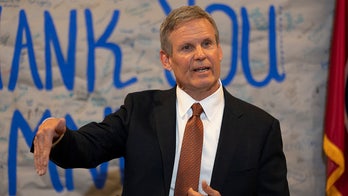Career employees at the top levels of government were told last week to give up the performance-based pay raises they were awarded in December, because they violated a one-raise-per-year rule.
The decision impacts just a few hundred employees, mostly at the Department of Energy, but the group representing the senior executives who were affected lamented that the workers could have to go consecutive years without any increase in pay.
"They don't have cost-of-living adjustments. They don't receive locality pay," Senior Executives Association President Carol Bonosaro said. "It is a bit of a dilemma."
Despite the Obama administration's call for a two-year pay freeze, much of the federal civilian workforce will still be eligible for a type of raise known as a "step increase." Senior executives, however, rely solely on performance-based pay increases and promotions - meaning the pay freeze for them does not come with loopholes.
To pre-empt the pay freeze, Bonosaro said about 220 executives at the Department of Energy, along with a handful at a couple other, small agencies, were given performance-based raises at the very end of last year. That raise, of between 2 and 3 percent, was supposed to last them through the rest of the freeze. However, the Office of Personnel Management found the move to be in violation of a rule prohibiting two such raises in one year -- another set of raises had been handed out in January 2010.
Bonosaro said Energy Department employees were just trying to reward themselves for the work they put in over the course of 2010.
"I don't think there was anything nefarious about it," she said. But she described OPM's ruling as "perfectly appropriate" and said the employees would agree to give up the raises for the rest of the year. Bonosaro said they would not have to hand over the extra money they had already earned from January to March.
The average senior executive salary was close to $170,000 last year, meaning the raises were worth no more than about $5,000 each.




